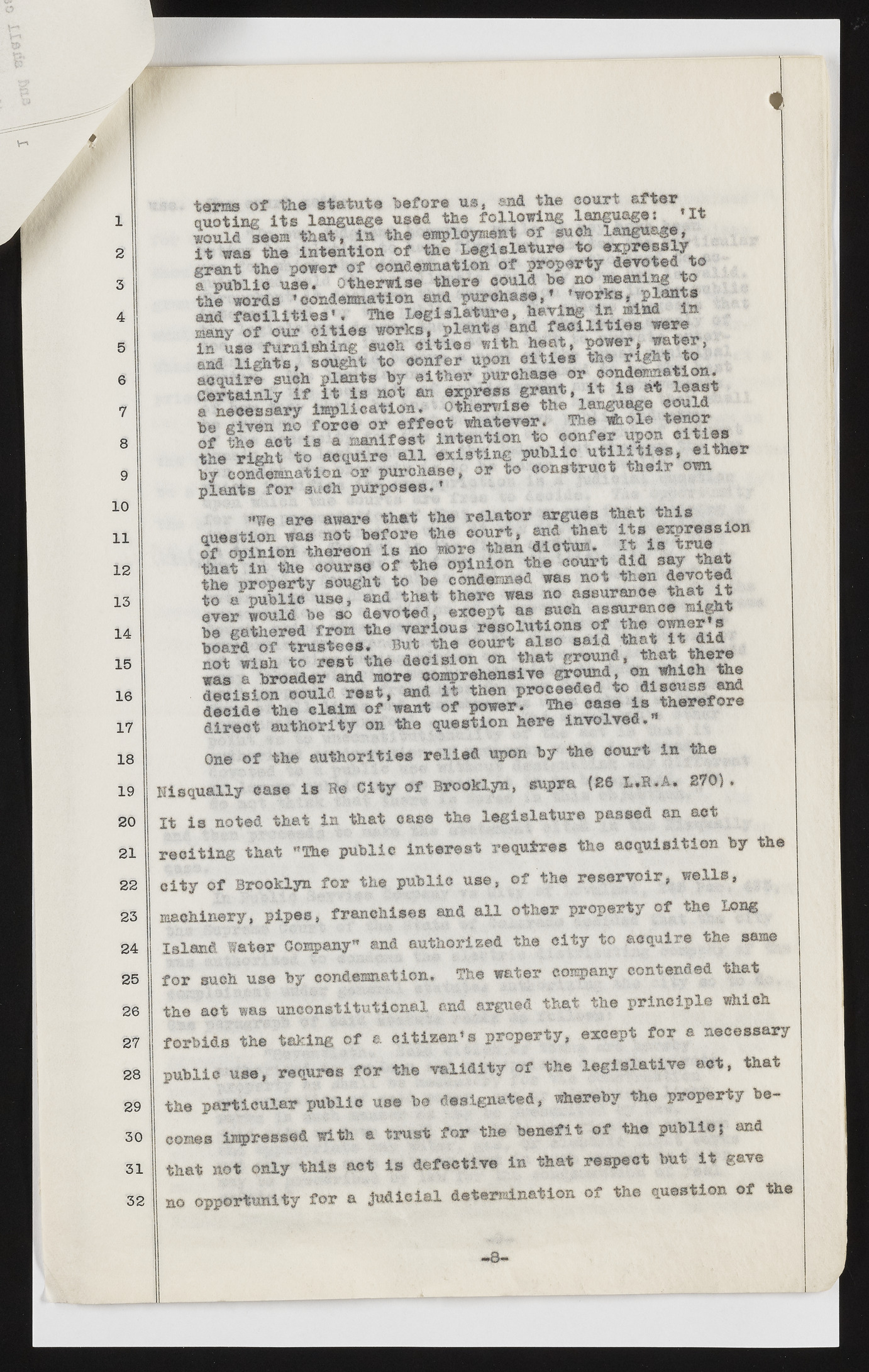Copyright & Fair-use Agreement
UNLV Special Collections provides copies of materials to facilitate private study, scholarship, or research. Material not in the public domain may be used according to fair use of copyrighted materials as defined by copyright law. Please cite us.
Please note that UNLV may not own the copyright to these materials and cannot provide permission to publish or distribute materials when UNLV is not the copyright holder. The user is solely responsible for determining the copyright status of materials and obtaining permission to use material from the copyright holder and for determining whether any permissions relating to any other rights are necessary for the intended use, and for obtaining all required permissions beyond that allowed by fair use.
Read more about our reproduction and use policy.
I agree.Information
Digital ID
Permalink
Details
Member of
More Info
Rights
Digital Provenance
Publisher
Transcription
1 2 3 4 5 6 1 8 9 « B 5 S of the statute l « | u®, SS# the court a fte r quoting it s language used f i t following language: It would seem that, in the employment of such language* i t was tiis intent ion of the Legislature to eipressly grant th© power of condemnation o f property devoted to I public use. Otherwise there could be no weaniagjto the words 1 oontesmatiom and purchase» f worse,^plants and f a c i l i t i e s ’ * The le g isla tu re , saany o f our c itie s works, plants and f a c ilit i e s in use furnishing such c itie s with heat, power, water, end lig h ts , sought to confer upon c itie s the right to acquire such plants by either purchase or fa b r ic a t io n . Certainly i f i t is not an. express grant, i t is ©t least © necessary implication* Otherwise the language be siren no fore# or e ffe c t whatever« The of the act is a .manifest intention to confer upon e^ tie » the right to acquire a l l existing public u t i li t i e s , either by condemnation or purchase* or to construct th eir own plant® fo r such purposes*’ #§% ©re aware that the re la to r argues that this question was not before the court, and that of opinion thereon is no more tban dietuit. It i s true that in the course o f the opinion the court did say that the property sought to be condemned was not then devoted to / p u b lic use, and that there was no f ' T i l t ever would be so devoted, except as such * * * J ^ * £ * * $ * * be gathered from the various resolutions of the ® board of trustees* But the court also said that i t did not wish t© rest the decision, on that p ? m & € * JpjJJ. IS^ISb, was a broader ahd more comprehensive {***«»** 1® S * S | S £ | decision could re st, and it then V ^ f ed to di w u o i decide the claim of want of power* ®te case is therefor® direct authority on the question her® involved* One o f the authorities re lie d upon by the court in the isqu ally case is Be City of Brooklyn, supra (S6 L*B.JU 270). | i 8 noted that in that case the le g isla tu re passed an act •©citing that "The public interest requires the acquisition by the (it y of Brooklyn fo r the public use, of the reservoir, w ells, lachinery, pipes, franchises and a l l other property of the long [sland la te r Company" and authorised the city to acquire the same !*or such use by condemnation. The water company contended that fche act was unconstitutional and argued that the prin ciple which forbids the taking of a c itiz e n ’ s property, except fo r a necessary public use, requres fo r the v a lid ity of the le g is la tiv e act, that the p articu lar public use b# designated, whereby the property becomes impressed with a trust fo r the benefit, o f the public| and that not only th is act is defective in that respect but i t gave no opportunity fo r a ju d ic ia l determination of the question o f the

